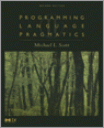Today I found a great class to help me calculating text metrics in Flash. It's really nice, you can use it to locate every single word / line etc. in a (for instance) wrapping textField. Actionscript 3 has got nice built in methods for this, but unfortunately, for the current project I need to develop with Actionscript 2. Jack Doyle created a very nice actionscript 2 class for this:
PHP Extension order and Core Dumps
After updating my FreeBSD port php and apache I suddenly got a whole lot of core dumps. The hosted websites were running fine, but the core dumps didn't feel quite right.. (of course).
Another FreeBSD server of mine, also updated to the same version, didn't have these core dumps.
Doing some research on the web I found that a wrong order in extensions.ini could be a cause of my problems.
Changing the order of the extensions.ini solved my problem!
The following extensions.ini is is working for me:
extension=fileinfo.so
extension=filter.so
extension=json.so
extension=zip.so
extension=hash.so
extension=pdf.so
extension=pgsql.so
extension=ctype.so
extension=mysql.so
extension=mbstring.so
extension=gettext.so
extension=dba.so
extension=sysvshm.so
extension=gmp.so
extension=pdo.so
extension=tidy.so
extension=pcntl.so
extension=openssl.so
extension=readline.so
extension=simplexml.so
extension=calendar.so
extension=posix.so
extension=tokenizer.so
extension=bz2.so
extension=dbase.so
extension=xmlwriter.so
extension=ldap.so
extension=session.so
extension=sybase_ct.so
extension=exif.so
extension=sysvmsg.so
extension=mcrypt.so
extension=bcmath.so
extension=pdo_sqlite.so
extension=mssql.so
extension=sockets.so
extension=zlib.so
extension=pcre.so
extension=curl.so
extension=mhash.so
extension=imap.so
extension=iconv.so
extension=spl.so
extension=dom.so
extension=pspell.so
extension=soap.so
extension=xmlreader.so
extension=shmop.so
extension=sqlite.so
extension=xml.so
extension=xsl.so
extension=mysqli.so
extension=wddx.so
extension=sysvsem.so
extension=ftp.so
extension=xmlrpc.so
extension=snmp.so
extension=ncurses.so
extension=odbc.so
extension=ming.so
extension=gd.so
Ruby’s “Begin Rescue” and “Try and Catch”
Thanks to the book "Programming Language Pragmatics" 
I'm beginning to appreciate Ruby's different notation for exception handling.
A sample:
begin value = 7 / 0 rescue print "Something went wrong! This is an error" end
The code above is to catch an exception. (In Java or C++ you would use try and catch)
Ruby also has got try and catch, but this isn't used for exception handling. It is used for implementing "Multi Level Returns".
A sample:
def search( name ) # .. some fancy code here .. if filename.contains( name ) throw :found_it, filename end result = catch :found_it do search "one" search "two" search "three" false end
In the sample above, result will be filled with the found filename. This can be
with the keyword "one", "two" or "three". If nothing is found result is filled with false. (the last value in the catch block)
I don't think I need the catch construct very much, but it's a nice feature!
Don’t use innerHTML, but use Prototype’s Element.update method!
Note to self: When using prototype don't use the innerHTML property.
Internet Explorer has got a (in my opinion) broken implementation for certain elements.
It is not possible to change the innerHTML content of the TR and SELECT elements.
Fortunally Prototype has fixed these problems in the Element.update method!
$("tr_id").update( "
" );
MSSQL Locking Problems
It has been a long time since my last post. Currently I'm very busy on a big project...
Yesterday we had a nice problem. A company I work is using the following configuration on it's webserver: IIS, PHP and MSSQL. (yes an S). What's wrong with this configuration? Well two things: IIS and MSSQL.
That's not all: in PHP we connect to the database via 2 methods: via the ADODB COM object and the normal mssql functions from PHP.
We had the following problem in a certain module:
Every time we executed a Second query, the second query failed but we NEVER got an error message. Example:
(pseudo code:)
BEGIN TRANSACTION
SELECT * FROM mytable WHERE kind='item1'
... more code ...
SELECT * FROM mytable WHERE kind='item2' // <= This query failed every time, without an error message
... more code 2 ...
COMMIT TRANSACTION
Looks very strange, but after too many hours we found our problem:
(pseudo code:)
BEGIN TRANSACTION
... code 1 ...
SELECT * FROM mytable WHERE kind='item1'
...
INSERT .. INTO mytable( ... ) VALUES ( ... )
..
SELECT * FROM mytable WHERE kind='item2' // <= This query failed every time, without an error message
... code 3 ...
COMMIT TRANSACTION
What's the problem:
BEGIN TRANSACTION # is executed by ADODB
SELECT * FROM ... # is executed by mssql_* functions from PHP
INSERT ... # is executed by ADODB
SELECT * FROM # is executed by mssql_* functions from PHP
..
Well when retrieving the data again the mssql_* connection fails because it notices the data has changed and it must wait for the other transaction to finish...
Aaaaaargh.... 8 hours of my time wasted!
Btw. A few year ago we had a good reason forusing ADODB in PHP: the mssql version of PHP wasn't realiable. And we are using "queries from hell" ( sql server XML queries ), which (at that time) couldn't be retrieve by the mssql functions of PHP.
